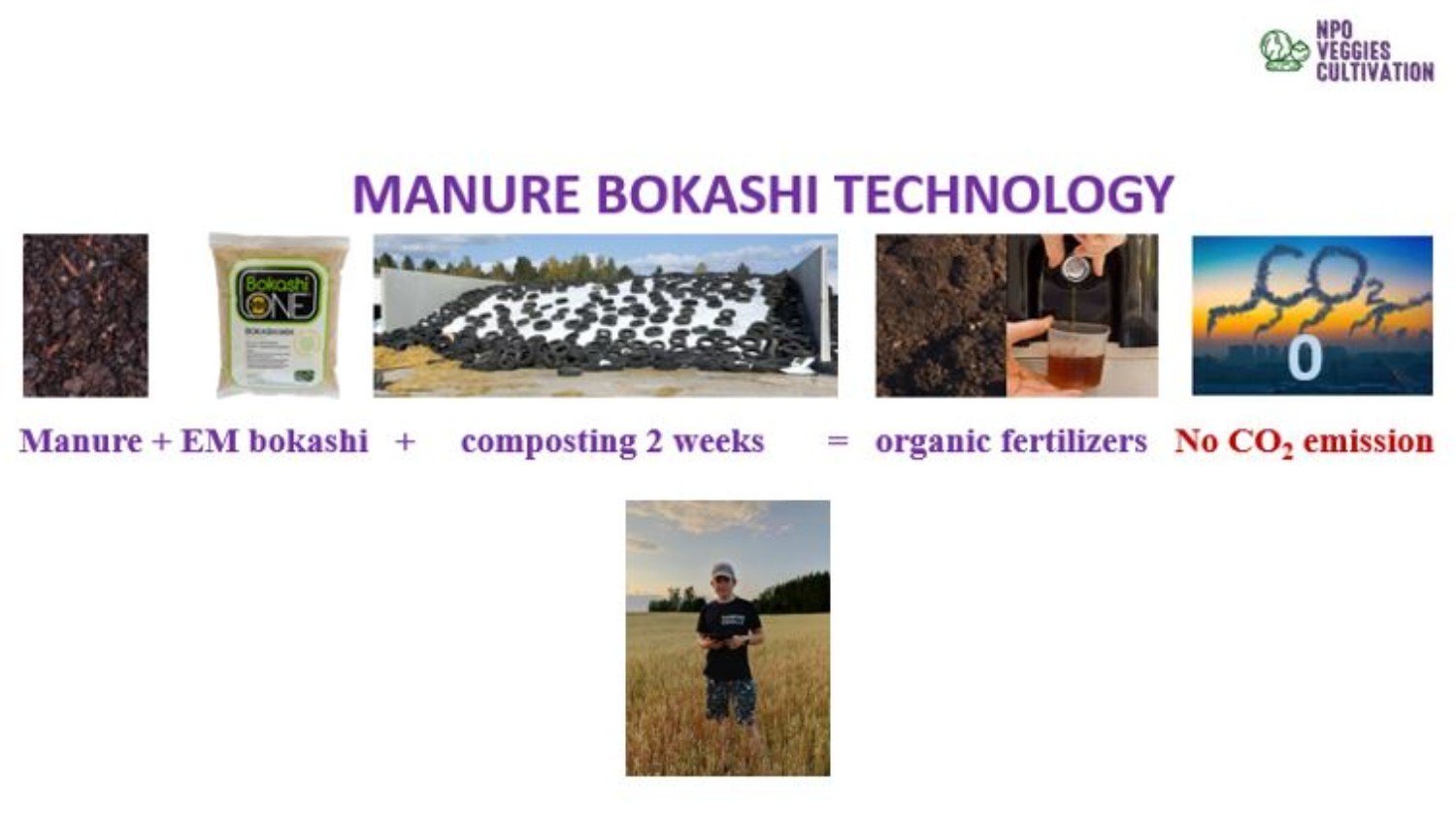Embrace Bokashi for a Brighter Tomorrow!
Embrace Bokashi for a Brighter Tomorrow!
What will you fundraise for today?
Description
The main goal of manure bokashi technology is to provide a sustainable and efficient solution for managing agricultural waste. It aims to:
1. Enhance Soil Fertility: By fermenting manure, bokashi technology preserves nutrients like nitrogen, making them readily available for plants and improving soil health.
2. Reduce Environmental Impact: The process minimizes greenhouse gas emissions, such as methane and ammonia, which are common in traditional manure management methods.
3. Promote Sustainable Agriculture: By reducing reliance on chemical fertilizers and improving soil productivity, bokashi technology supports eco-friendly farming practices.
4. Efficient Waste Management: It offers a quick and odor-free method to process manure, turning it into valuable byproducts like Liquid and Solid fermentate for agricultural use.
PROBLEM:
Biowaste is a huge problem.
BUSINESS IDEA:
Manure bokashi technology
Key impact:
1. Faster: 2 weeks versus 0.5 year
2. No CO2 emission
3. No nutrient leaching
4. Made locally – no transport costs
5. Soil microbiome restoration
6. Locks C in soil
7. Decrease the amount of synthetic fertilizers
8. EM increases Ca uptake, which results in stronger plants, less plant protection needed.
Manure bokashi technology introduces a novel approach to managing agricultural waste by leveraging microorganisms to ferment manure and organic waste. Here's how it stands out:
Innovation:
Unlike traditional composting, bokashi fermentation is an anaerobic process, meaning it excludes oxygen. This method uses specialized microbes and fungi to break down organic matter efficiently, releasing diverse metabolites and nutrients2.
It eliminates greenhouse gas emissions like methane and ammonia, which are common in conventional manure management2.
Problem-Solving:
Bokashi technology addresses the challenge of nutrient loss during manure decomposition. By locking nitrogen into the byproducts, it enhances soil fertility and reduces reliance on chemical fertilizers.
Practical Benefits:
The process is quick, taking about two weeks.
It produces valuable byproducts liquid and solid fertilizer, which can be used to improve soil health and productivity.
This technology is a significant improvement over existing solutions, offering a sustainable, efficient, and environmentally friendly alternative to traditional manure management.
Manure bokashi technology stands out from existing approaches due to its innovative process and benefits:
Anaerobic Fermentation: Unlike traditional composting, bokashi uses anaerobic fermentation, which minimizes nutrient loss and reduces greenhouse gas emissions like methane and ammonia.
Enhanced Soil Health: Bokashi-treated manure improves soil fertility by increasing nutrient diversity and availability. It also helps amend acidic soils, making it more effective than conventional manure.
Odor Control: The fermentation process eliminates unpleasant odors, making it more suitable for use in various environments.
Quick Processing: Bokashi technology is faster than traditional methods, taking only about two weeks to produce usable byproducts.
Sustainability: It offers a low-emission pathway for agricultural waste management, contributing to climate resilience and sustainable farming practices.
These unique features make bokashi technology a game-changer in manure management.
Funds will be solely used to develop manure bokashi technology for Northern Climates.
Each contributor will get after experiments done (if the target sum is reached) a small pdf document as a summary of R&D done and guidance note free of charge.

There is no description yet.





